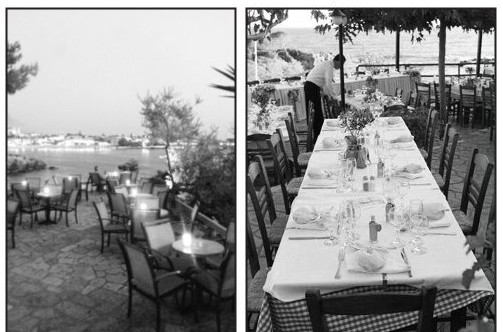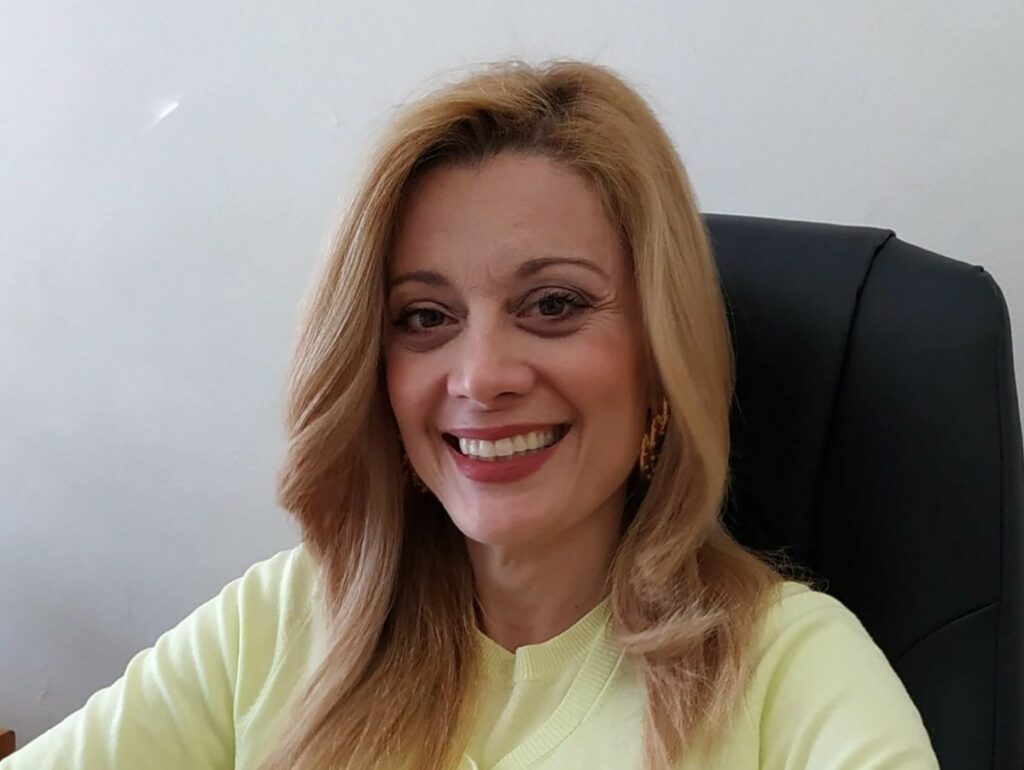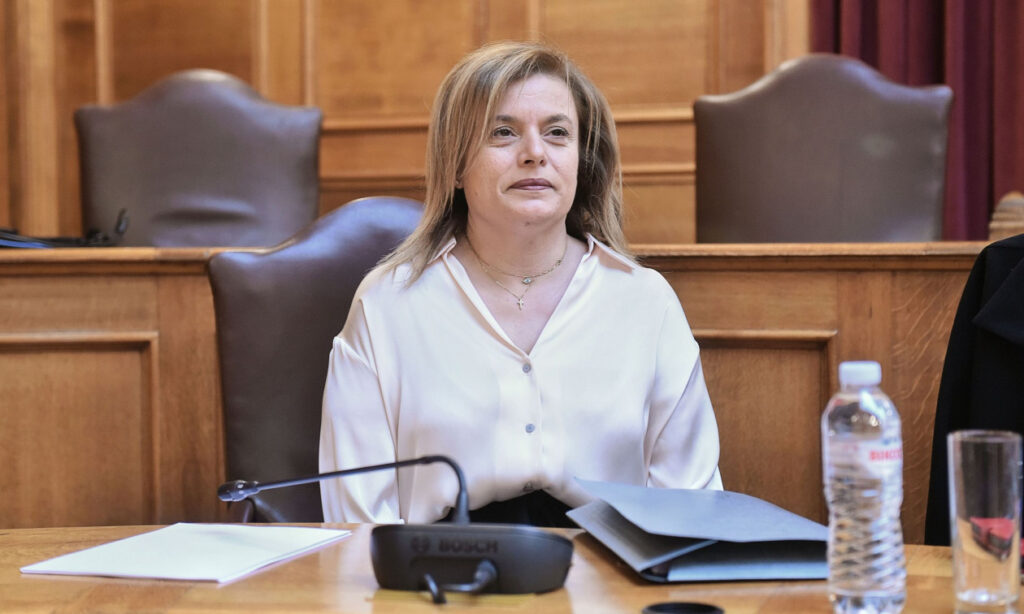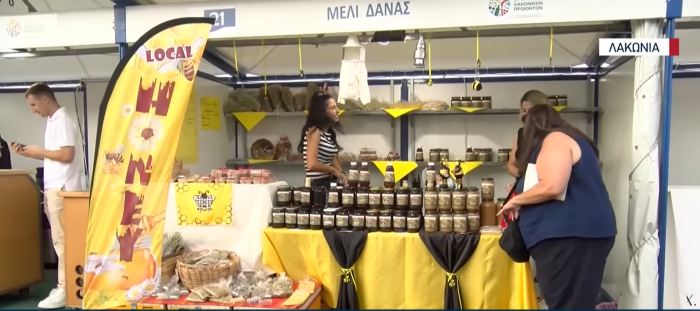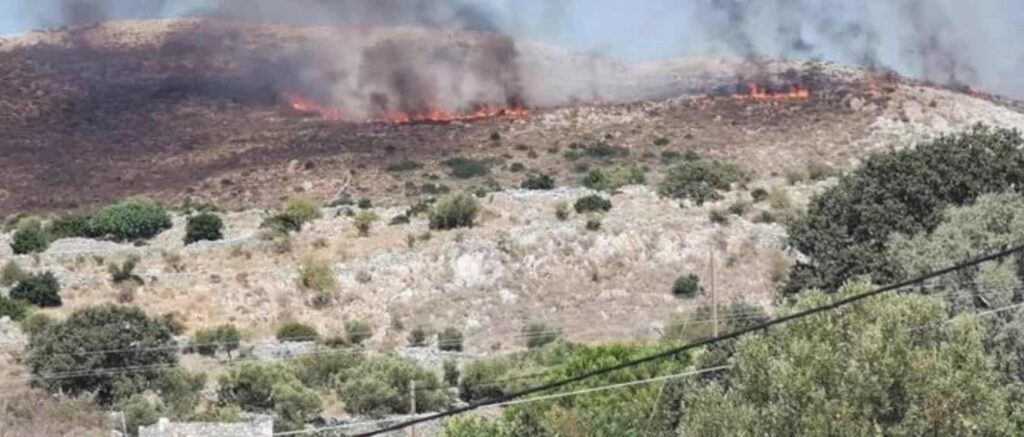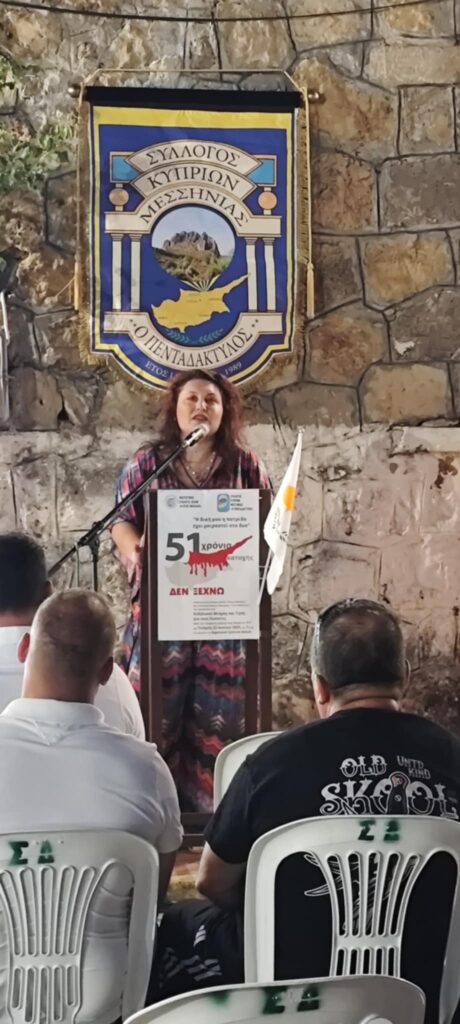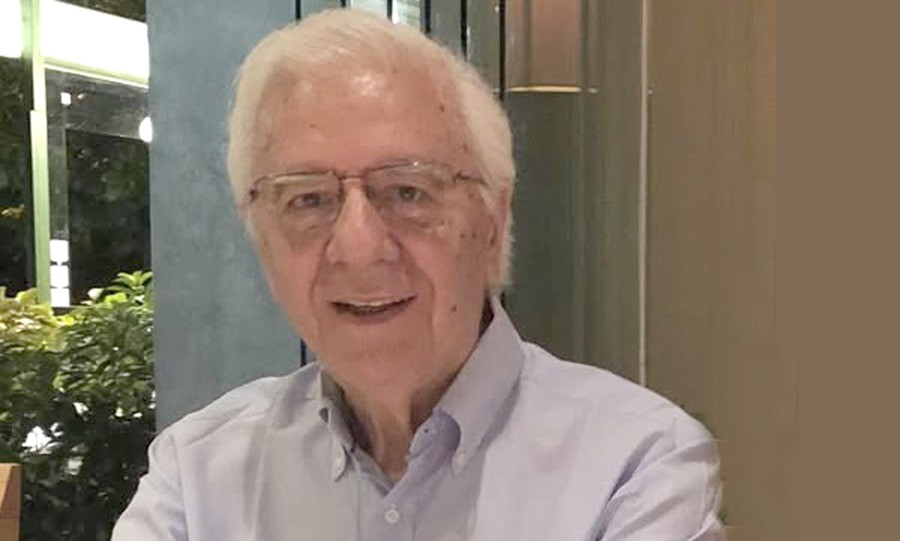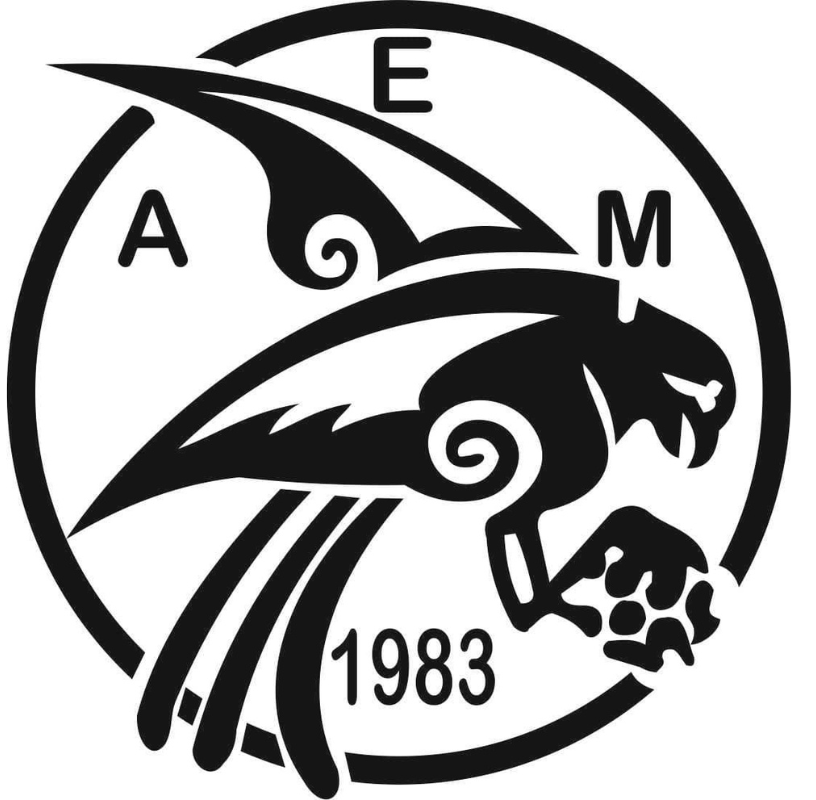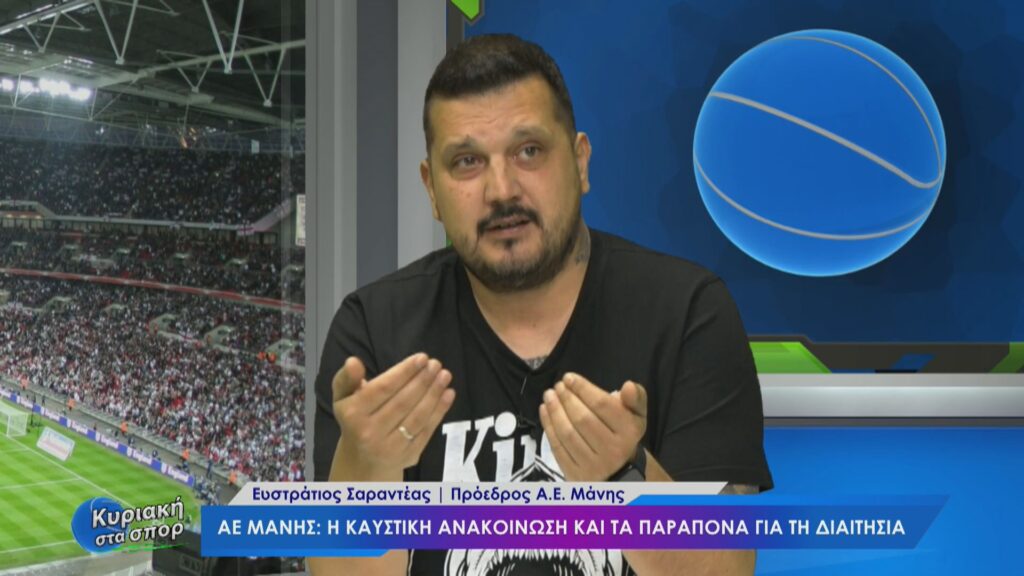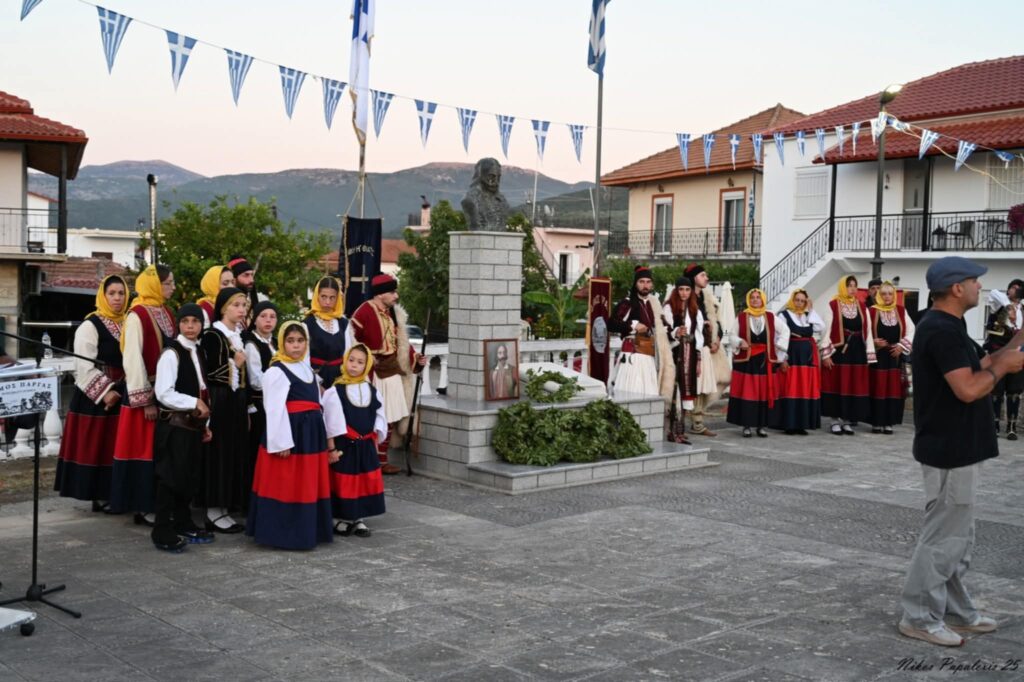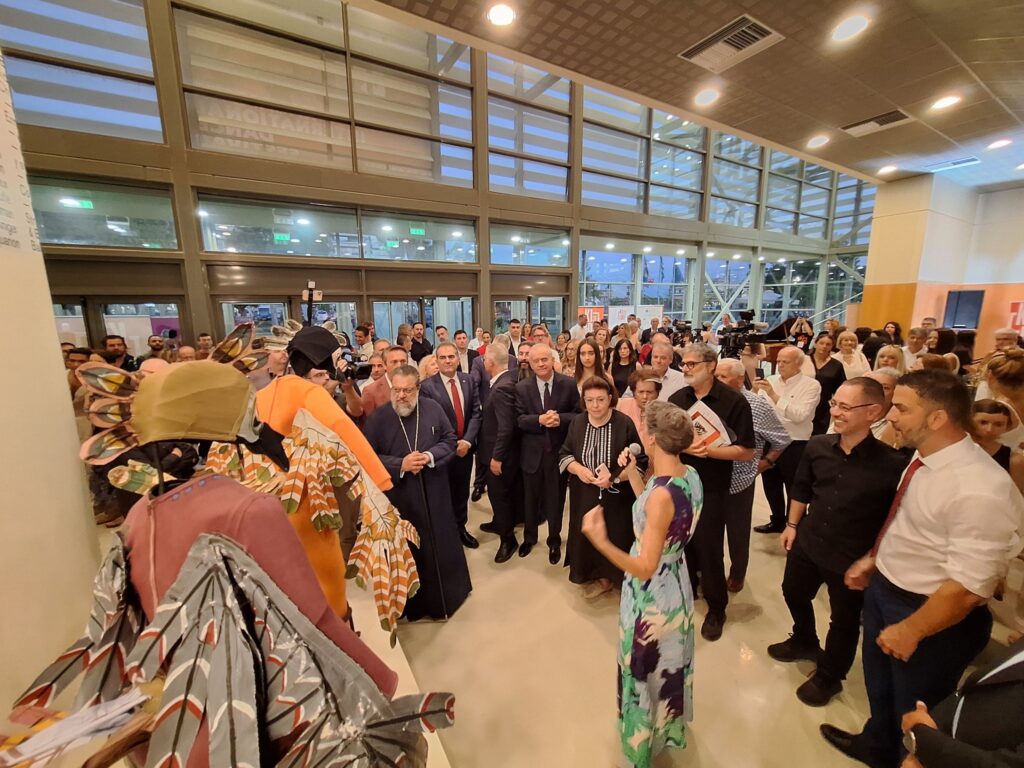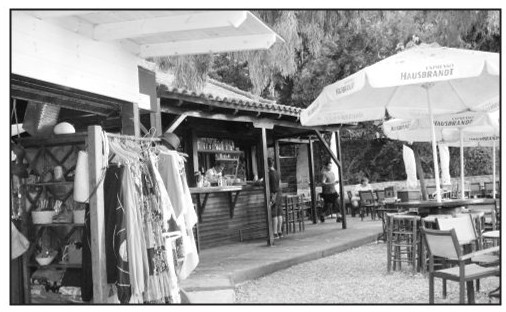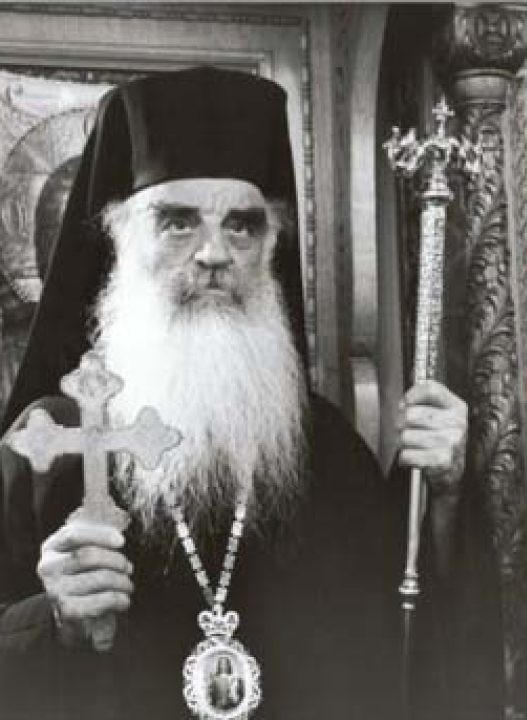Εισήγηση Νικ. Ε. Μαραμπέα, Σχολικού Συμβούλου Φυσικών
(Πρόγραμμα Κινητικότητας Εκπαιδευτικών:
ΟΙ ΦΥΣΙΚΕΣ ΕΠΙΣΤΗΜΕΣ ΣΕ ΘΕΜΑΤΙΚΕΣ ΤΟΥ ΦΥΣΙΚΟΥ ΠΕΡΙΒΑΛΛΟΝΤΟΣ
Δράση 1β, Επιχειρησιακού Προγράμματος Εκπαίδευσης και Αρχικής Επαγγελματικής Κατάρτισης ( Ε Π Ε Α Ε Κ )
Σεπτέμβριος 2000).
Α. Ιστορική διαδρομή
- Εισαγωγή.
Η ενέργεια, με διάφορες μορφές και ονόματα έχει συνδεθεί με τον άνθρωπο, από τα πρώτα χρόνια της εμφάνισής του στον πλανήτη μας. Η συστηματική όμως προσέγγιση των μορφών της και των χαρακτηριστικών τους αποτελεί αντικείμενο της επιστημονικής σκέψης των τριών τελευταίων αιώνων. Τους αιώνες που μεσολάβησαν, ο άνθρωπος ανακάλυπτε σταδιακά τα μυστικά της και προσπαθούσε να επωφελείται από τα ευνοϊκά τους αποτελέσματα στον τρόπο διαβίωσής του. Η διαδικασία αυτή κάθε άλλο από συνεχής και αδιατάρακτη ήταν. Όμως η ωφέλεια τελικά συσσωρευόταν και η βελτίωση των όρων διαβίωσης, χάρη στην ενέργεια, είναι προφανής.
Με την ανακάλυψη και χρήση της φωτιάς από τον πρωτόγονο άνθρωπο εμφανίζεται για πρώτη φορά συστηματική χρησιμοποίηση ενεργειακών πηγών
στην καθημερινή ζωή του ανθρώπου. Πρώτη ενεργειακή ύλη χρησιμοποιείται το ξύλο, η ξερή βιομάζα, που συλλέγεται εύκολα από το περιβάλλον, προϊόν της αυτόματης λειτουργικής αλυσίδας των φυτών. Η ενέργεια που προκύπτει από αυτή τη λειτουργία δίνει στον άνθρωπο τη δυνατότητα, αργά και σταδιακά, να ξεπεράσει το στάδιο της “συλλεκτικής” αναζήτησης της τροφής και να οδηγηθεί στο στάδιο της καλλιέργειας της γης. Σ` αυτό χρησιμοποιεί τη μυϊκή του ενέργεια αρχικά. Στη συνέχεια όμως ακολουθεί το στάδιο της εξημέρωσης των ζώων, και κάποια απ` αυτά γίνονται κατοικίδια. Τότε η καλλιέργεια της γης γίνεται ευκολότερη με τη χρησιμοποίηση της μυϊκής ενέργειας των μεγάλων ζώων.
Οι αιώνες προχωρούν και η ενέργεια εντάσσεται ολοένα στη ζωή. Ανακαλύπτονται αργά – αργά οι δυνατότητες που προκύπτουν από την εκμετάλλευση της ταχύτητας που πέφτει το νερό, σε περιοχές με διαφορά υψομέτρου, καθώς και εκείνες που προκύπτουν από το φύσημα του ανέμου. ΄Ηδη πολλά στοιχεία ενέργειας έχουν γίνει αναγκαία στη ζωή.
- Ενσωμάτωση ενεργειακών χαρακτηριστικών στη θρησκευτική ζωή.
Η θρησκεία αποτελεί χαρακτηριστικό δείγμα των ανησυχιών, αλλά και των ενασχολήσεων κάθε λαού. Αυτό οδηγεί σε μορφοποιήσεις και θεοποιήσεις τέτοιων ανησυχιών και ενασχολήσεων. Το παρατηρούμε σε όλες τις θρησκείες που αναπτύσσονται στο μεσογειακό χώρο, που αποτελεί κοιτίδα της ανάπτυξης του πολιτισμού.
Στην Ελληνική μυθολογία οι μορφές του ΄Ικαρου και του Φαέθοντα συνδέονται με την ηλιακή ενέργεια, ενώ η μορφή του Αίολου κυριαρχεί στους ανέμους και δίνει το όνομα του σ` αυτή τη μορφή ενέργειας που γενικεύεται και προεκτείνεται μέχρι τις ημέρες μας. ΄Ετσι εντάσσονται αυτές οι προσωποποιήσεις της ενέργειας στον κύκλο των θεών και των ηρώων.
Αντιγράφομε μερικά χαρακτηριστικά και γλαφυρά αποσπάσματα.
Το πρώτο γιά το Δαίδαλο και τον ΄Ικαρο (και εμμέσως στη μυϊκή και την ηλιακή ενέργεια):
Σύμφωνα με τον μύθο ο Μίνωας, ο βασιλιάς της Κρήτης είχε στην υπηρεσία του τον Δαίδαλο, που του σχεδίασε και εκτέλεσε όλες τις κατασκευές. Επειδή κάποιες ενέργειές του είχαν εξοργίσει τον Μίνωα, ο τελευταίος τον αναζητούσε παρακολουθώντας, μέσω ανθρώπων του, τους απόπλους όλων των πλοίων από τα λιμάνια της. Αποκλεισμένος και καταζητούμενος ο Δαίδαλος εμπνεύστηκε από τα πουλιά, που παρατήρησε πως πετούσαν κουνώντας τις φτερούγες τους, και σκέφτηκε ότι και ο ίδιος με τον ίδιο τρόπο θα μπορούσε να ξεφύγει από τη δύσκολη θέση. Γι` αυτό μάζεψε πούπουλα από κάθε λογής πετούμενα, τα κόλλησε με κερί και έκανε φτερούγες για τον εαυτό του και το γιό του τον ΄Ικαρο. ΄Ετσι μιά μέρα πατέρας και γιός πέταξαν σαν πουλιά και έφυγαν μακριά από την Κρήτη και από την εξουσία του βασιλιά της. Στο ταξίδι τους ο νεαρός ΄Ικαρος, μαγεμένος από το πέταγμα πάνω στο κατάφωτο Αιγαίο, όπως ήταν ελαφρότερος από τον πατέρα του, ανέβηκε πολύ ψηλά, κοντά στον ΄Ηλιο. Τότε όμως το κερί έλιωσε, τα φτερά διαλύθηκαν και ο ΄Ικαρος έπεσε στο πέλαγος και χάθηκε. Ο Δαίδαλος συνέχισε μόνος το πέταγμα και έφτασε στη Σικελία.
Το δεύτερο στον Αίολο (και εμμέσως στην αιολική ενέργεια):
Φεύγοντας από τη χώρα των Κυκλώπων,ο στόλος του Οδυσσέα ταξιδεύει σε άγνωστες θάλασσες, ώσπου κάποια μέρα αράζει στην Αιολία, ένα νησί πλεούμενο, ζωσμένο ολόγυρα με χάλκινα τείχη. Εκεί ζούσε ο Αίολος, ο γιός του Ιππότη, με τη γυναίκα του και τα παιδιά του, έξη γιούς και έξη κόρες, που τα είχε παντρέψει μεταξύ τους για να τα έχει όλα κοντά του. Τον Αίολο τον είχε κάνει ο Δίας κλειδοκράτορα των ανέμων, να σηκώνει και να κόβει όποιον ήθελε.
Ένα μήνα ολόκληρο φιλοξενεί ο Αίολος τον Οδυσσέα και τους ανθρώπους του. Όταν έπειτα ο ήρωας τον παρακαλεί να τους αφήσει να φύγουν, εκείνος παίρνει ένα ασκί μεγάλο, κλείνει μέσα όλους τους αέρηδες, έξω από τον Ζέφυρο και το σφιχτοδένει με χοντρή κλωστή ασημένια πάνω στο καράβι του Οδυσσέα, ώστε να μην μπορεί να ξεφύγει ούτε η πιο ανάλαφρη πνοή ενάντιου ανέμου. Η αυστηρή εντολή του ήρωα είναι να μην το ανοίξει πάνω στο ταξίδι.
Σπρωγμένος από τον Ζέφυρο ο στόλος αρμενίζει εννέα μέρες και εννέα νύχτες. Στις δέκα βλέπουν να χαράζει μπροστά τους η Ιθάκη και, όσο πλησιάζουν, τόσο πιο καθαρά ξεχωρίζουν τις φωτιές που άναβαν οι βοσκοί στα βουνά.
Μα η μοίρα δεν έγραφε τόσο γρήγορο το γυρισμό του Οδυσσέα στην πατρίδα. Ο ήρωας, που τόσα μερόνυχτα είχε μείνει άγρυπνος να κυβερνά το καράβι, χωρίς να εμπιστεύεται το τιμόνι σε άλλον, πέφτει μια στιγμή αποκαμωμένος σε ύπνο βαθύ. Και τότε οι σύντροφοί του, με την ιδέα ότι το ασκί θα έκρυβε χρυσάφι και ασήμι, χαρισμένα στον αρχηγό τους από τον Αίολο, το ανοίγουν από περιέργεια.
Η φοβερή θύελλα που ξεσπάει, καθώς από το ανοιγμένο ασκί ξεχύνονται όλοι οι άνεμοι, ρίχνει το καράβι, ύστερα από μέρες, πίσω στην Αιολία. Η βασιλική οικογένεια του νησιού βρισκόταν στο τραπέζι, όταν ξαφνικά βλέπουν πάλι τον Οδυσσέα με δύο συντρόφους να έχει καθίσει ικέτης στο κατώφλι του μεγάρου, χωρίς να τολμάει να προχωρήσει παραμέσα. ΄Όταν ο ήρωας τους ιστορεί τι κακό παιχνίδι του είχαν παίξει οι δικοί του, ο Αίολος δεν είναι καθόλου πρόθυμος να του παρασταθεί άλλη φορά. – Χάσου από το νησί μου γρήγορα, χαμένε άνθρωπε! Έναν άντρα που οι θεοί τον έχουν τόσο μισήσει, πως γυρεύεις να τον βοηθήσω εγώ;
(Ελληνική Μυθολογία – Εκδοτική Αθηνών)
- Μεταβολές στη διαχρονική πορεία μέχρι τον 17ο αιώνα.
Η περίοδος από τους αρχαϊκούς χρόνους μέχρι τον 17ο αιώνα μπορεί να χαρακτηρισθεί, σχετικά με τις αντιλήψεις για την ενέργεια, από μια αργή πρόοδο. Η πολιτική και κοινωνική ζωή διαφοροποιείται και αυτή με αργούς ρυθμούς, διαμορφώνοντας την έννοια της προόδου. Η τελευταία έχει την αντανάκλασή της στην καθημερινή ζωή, με τη βελτίωση των όρων διαβίωσης (κατοικία, ενδυμασία, φαγητό), που σχετίζεται άμεσα με την αναγνωρίσει και χρήση μορφών της ενέργειας.
Η επέκταση του εμπορίου, μέσω της ναυπήγησης αξιόπλοων μέσων, και της συνδυασμένης χρήσης κουπιών και πανιών, οδηγεί τον άνθρωπο, με σχετική ασφάλεια, σε υπερπόντια ταξίδια και επεκτείνει το εμπόριο, με τα προϊόντα και τον πλούτο των νέων χωρών. Η ανάγκη για περισσότερα αγαθά με τη σειρά της, οδηγεί στην αναζήτηση νέων ενεργειακών μέσων, μέσω των ανακαλύψεων που προωθούνται από τους επιστήμονες και τους μελετητές.
Αυτά μεταφράζονται στην πράξη με χρήση νέων εργαλείων και μηχανημάτων, που από τη μια μεριά διευκολύνουν την προσέγγιση στις ενεργειακές ύλες και από την άλλη διευκολύνουν τις διαδρομές χρήσης τους, ώστε να μεγιστοποιούνται τα αποτελέσματά τους. Η ενέργεια θα μπορεί τώρα, το 17ο αιώνα, να χρησιμοποιείται σταθερά και προγραμματισμένα, με πρώτες ύλες που θα παίρνει ο άνθρωπος από τη φύση, τα δάση. Ως αποτέλεσμα της χρήσης, εκτός των άλλων, θα προκύπτει και η κατασκευή μηχανών και εργαλείων, που θα υποβοηθούν την ευκολότερη προσέγγιση των πρώτων ενεργειακών υλών. Αυτή η διαδικασία οδηγεί στις εκχερσώσεις των εδαφών το 18ο αιώνα, που με τη σειρά τους μετατοπίζουν την ανεύρεση της ενεργειακής ύλης στο υπέδαφος, στο κάρβουνο, που γίνεται προσιτό χάρη στις μηχανές με ατμό, που λειτουργούν με την ίδια ενέργεια!
Ο άνθρωπος έτσι επιζητώντας ολοένα και μεγαλύτερες αποδόσεις, οδηγείται στις ορυκτές μορφές ενέργειας. Και αυτές οι ενεργειακές χρήσεις οδηγούν σε υπερπαραγωγή αγαθών, διαμορφώνοντας νέο ανθρώπινο πρότυπο: τον καταναλωτικό άνθρωπο.
5. H σύγχρονη περίοδος.
Τους τρεις αιώνες που πέρασαν πολύ μικρές μετατοπίσεις στην καταναλωτική αντίληψη διαμορφώθηκαν. Απλά, η παραγωγή προϊόντων και ο καταναλωτισμός επεκτάθηκαν ραγδαία, με τη χρήση και των νέων ενεργειακών υλών; του πετρελαίου και των ραδιενεργών μετάλλων. Όμως ο καταναλωτισμός συνοδεύεται από δύο αρνητικότητες. Αφενός έχει ημερομηνία, έστω και σχετικά μακρινή, λήξης, λόγω της σύνδεσής του με αποθέματα που διαμορφώνουν τις τιμές, αλλά και εξαντλούνται με την συνεχή άντλησή τους. Αφετέρου δημιουργεί αρνητικότητες στην ποιότητα ζωής, λόγω των παρενεργειών στο περιβάλλον. Η πορεία αυτή, αλλά και εκείνη προς το μέλλον συνοδεύεται από συνεχείς κρίσεις. Αυτές δημιουργούν ανασφάλεια, αλλά και προβληματισμό, που οδηγεί στην ήρεμη επαναπροσέγγιση της ενεργειακής διαδρομής από την αρχαιότητα μέχρι τις ημέρες μας. ΄Ετσι επανεμφανίζονται οι παλαιές μορφές ενέργειας, που συγκρινόμενες με τις χρησιμοποιούμενες, χαρακτηρίζονται ήπιες ή εναλλακτικές.
Β. ΄Ηπιες μορφές ενέργειας σήμερα (κατηγοριοποίηση και συμβατότητα με την οικονομική πτυχή).
Β1. Οι ήπιες μορφές ενέργειας (διάκριση σε κατηγορίες).
Μπορούν να διακριθούν με βάση την προέλευση τους σε κατηγορίες, που θα επιχειρήσομε να τις προσεγγίσομεστις πιο κάτω:
- Βιομάζα (από τη γεωργία).
΄Ετσι ονομάζεται η ύλη που δημιουργείται από κάθε τύπο φυτού με τη φωτοσύνθεση, δηλαδή με την επενέργεια των φωτονίων της ηλιακής ακτινοβολίας στο διοξείδιο του άνθρακα της ατμόσφαιρας. Οι ουσίες που παράγονται τελικά έχουν βάση τον άνθρακα και είναι υδατάνθρακες, λιπίδια και πρωτεΐνες. Η ενέργεια αυτή, που ξεκινά από τον ήλιο και με τη φωτοσύνθεση που γίνεται στα πράσινα τμήματα των φυτών και αποθηκεύεται σε αυτά, αποκαλείται πράσινη ενέργεια. Παρότι με τη διαδικασία αυτή αποδίδεται μικρό μέρος της ηλιακής ενέργειας, μέσω της επεξεργασίας της βιομάζας, θεωρείται σημαντική η συμβολή της στη διαμόρφωση ενεργειακών ισοζυγίων, ιδιαίτερα λόγω του ανεξάντλητου χαρακτήρα της.
Η βιομάζα αποτελούσε την κλασσική πηγή οικογενειακής θέρμανσης από το ξύλο ή τα γεωργικά παραπροϊόντα, από παλαιότατων χρόνων. Πηγή αποτελούσε και η κοπριά, λόγω της ενέργειας που πρόκυπτε από την αποσύνθεση και τις ζυμώσεις που υφίστανται τα συστατικά της.
Η τόσο παλιά αυτή πηγή ενέργειας αξιοποιείται σημαντικά και αποτελεσματικά και τις ημέρες μας, ιδιαίτερα σε χώρες με υψηλή τεχνολογία, που προφυλάσσει από τις αρνητικότητες στο περιβάλλον από τη μη αξιόπιστη χρήση της. Υλικά που χρησιμοποιούνται ως βιομάζα είναι τα απόβλητα : α) των γεωργικών εκμεταλλεύσεων, β) των επισιτιστικών βιομηχανιών και των οικογενειακών αποβλήτων. Οι τεχνικές αξιοποίησης της βιομάζας είναι πολλές και αποτελούνται από αλυσίδες βιομηχανιών. Από την αξιοποίηση αυτή εκτός του ενεργειακό όφελος προκύπτει και ποιοτικό όφελος από την ανακύκλωση των στερεών αποβλήτων, που συσσωρευόμενα σε μεγάλες ποσότητες δημιουργούν περιβαλλοντικές επιβαρύνσεις.
Με τις εξελίξεις της τεχνικής μπορεί στις ημέρες μας να αξιοποιηθεί αποτελεσματικά και η ενέργεια των ανέμων, με την κατασκευή ανεμογεννητριών. Αυτές αποτελούν την πρακτική έκφραση προσομοιωτών, που έχουν σχεδιαστεί με βάση τους νόμους της αεροδυναμικής και τα πορίσματα της μετεωρολογίας. Αυτό γιατί η αρχή λειτουργίας των ανεμογεννητριών στηρίζεται σε δύο μεγέθη: την επιφάνεια του ανεμοκινητήρα (πτερυγίου) και την ταχύτητα του ανέμου. Η τελευταία εξαρτάται από τις μεταβολές στην ατμοσφαιρική πίεση, που η απώτερη αιτία τους είναι οι μεταβολές στην ηλιοφάνεια!
Οι ανεμογεννήτριες αποτελούν τη μετεξέλιξη στη σύγχρονη περίοδο των αρχαϊκών προγόνων τους, των ανεμόμυλων. Αυτοί κάλυπταν για πολλούς αιώνες μεγάλες ενεργειακές ανάγκες σε όλα τα σημεία του πλανήτη μας και είχαν συνδεθεί με την κοινωνική ζωή.
Το είδος αυτό ενέργειας διακρίνεται από τη διαρκή χρησιμοποίησή της από την αρχαιότητα μέχρι σήμερα. Η μετατόπιση στις ορυκτές πηγές το 17ο αιώνα δεν επηρέασε τη συμμετοχή της στα ενεργειακά ισοζύγια των περιοχών με μεγάλες βροχοπτώσεις και έντονο γεωφυσικό ανάγλυφο. Η μεγάλη ώθηση σ` αυτήν προήλθε εδώ και έναν αιώνα με την έντονη χρησιμοποίηση της ηλεκτρικής ενέργειας. Παρότι δεν αποτελεί νέα μορφή, είναι χαρακτηριστική έκφραση της εναλλακτικότητας ή της ανανεωσιμότητας, κατά την εξέταση των ενεργειακών χαρακτηριστικών.
Μια τυπική ταξινόμηση στα επιμέρους είδη υδάτινης ενέργειας περιλαμβάνει εκείνη: α) των ποταμών, β) της παλίρροιας και γ) των κυμάτων. Όμως το δεύτερο είδος μπορεί να αξιοποιηθεί σε λίγες περιπτώσεις, που το φαινόμενο είναι έντονο, ενώ το τρίτο είδος απαιτεί μεγαλύτερη τεχνική πρόοδο για να μπορεί να οδηγήσει σε πρακτικά αποτελέσματα.
4. Η ηλιακή ενέργεια.
Πρόδρομες μορφές αξιοποίησης της ηλιακής ενέργειας εμφανίζονται με την εμφάνιση του ανθρώπινου είδους στον πλανήτη μας. Η άμεση θέρμανση από την ηλιακή ακτινοβολία και οι αυτόματες επενέργειές της στον υλικό κόσμο ανάγονται στα πρώτα στάδια εμφάνισης της ζωής.
Το φαινόμενο του θερμοκηπίου, που καταγράφηκε και συστηματοποιήθηκε με τις εξελίξεις της νεότερης Φυσικής, αποτελούσε φυσικό φαινόμενο που είχε σημειωθεί και χρησιμοποιηθεί επωφελώς, από τα πρώτα χρόνια του ανθρώπινου βίου. Ο εγκλωβισμός, δηλαδή της ηλιακής ενέργειας που εκπεμπόταν σε υψηλή συχνότητα και η επανεκπομπή της σε χαμηλή συχνότητα αποτελούσε δυνατότητα εφαρμογής και επωφελούς χρήσης για τον άνθρωπο, πολύ προτού αναγνωριστεί και τεκμηριωθεί επιστημονικά, σύμφωνα με τις μεθόδους της σύγχρονης επιστημολογίας.
Οι τρόποι συγκέντρωσης των ηλιακών ακτίνων και η αποτελεσματικότητά τους μετά τη συγκέντρωση αποτελούσε αντικείμενο ενασχόλησης της επιστημονικής σκέψης πολλούς αιώνες πριν την επικράτηση της νέας χρονολογικής αρίθμησης. ΄Ηδη ο Αρχιμήδης τον 4ο π. χ. αιώνα χρησιμοποίησε στις Συρακούσες ηλιακά κάτοπτρα για να συγκεντρώνει και να επανεκπέμπει ηλιακές ακτίνες. Και χρησιμοποίησε την τεχνική του επενεργώντας μέσω της ανάπτυξης τεχνικών στον πόλεμο, για να κάψει το Ρωμαϊκό στόλο που πολιορκούσε την πατρίδα του της Συρακούσες της Σικελίας. Οι τεχνικές δηλαδή της συγκέντρωσης της ηλιακής ενέργειας αποτέλεσαν την πεμπτουσία για τις περαιτέρω εφαρμογές της.
Για την ηλιακή ενέργεια είναι αποκαλυπτικό το κείμενο που ακολουθεί, ως ένθετο:
Οι σύγχρονες εφαρμογές της ηλιακής ενέργειας στηρίζονται στην ίδια αρχή χρησιμοποιώντας όμως νέες τεχνικές, ιδίως στον τομέα των υλικών, που προωθήθηκε σημαντικά τις τελευταίες δεκαετίες, ακολουθώντας τις αναγκαιότητες που επέβαλλε η ανάπτυξη της αεροδιαστημικής. Η ευρεία χρήση των ημιαγωγών, και η αξιοποίηση των ιδιοτήτων τους, όπως ισχύει ιδιαίτερα για το σελήνιο στην περίπτωσή μας, προώθησε σε πρακτική εφαρμογή την αρχή λειτουργίας συστημάτων με τα χαρακτηριστικά του ηλεκτρικού φούρνου και οδήγησε στις εφαρμογές των φωτοβολταϊκών συστημάτων, που αποτελούν τις σύγχρονες εφαρμογές της ηλεκτρικής ενέργειας.
5. Η γεωθερμία.
Αφετηρία της αποτελούν οι υψηλές θερμοκρασίες στο εσωτερικό του πλανήτη μας. Οι θερμοκρασίες αυτές, μέσω υλικών στην υγρή ή αέρια μορφή, κυρίως νερού, έρχονται στην επιφάνεια και επενεργούν ενεργειακά. Στην αρχαιότητα η ενεργειακή επενέργεια γινόταν μέσω των ιαματικών ιδιοτήτων τους, και οι πηγές ανάβλυσης , οι “θέρμες” αξιοποιούνταν κυρίως θεραπευτικά.
Τη σύγχρονη περίοδο τα αναβλύζοντα από το εσωτερικό της γης ρευστά, χρησιμοποιούνται ποικιλοτρόπως για ενεργειακή χρήση, ανάλογα με τη θερμοκρασία τους (υψηλής ενέργειας για θερμοκρασίες αναβλυζόντων υλικών άνω των 100 βαθμών Κελσίου, μέσης ενέργειας για θερμοκρασίες 50 έως 90 βαθμών και χαμηλής ενέργειας για θερμοκρασίες από 20 έως 50 βαθμών). Προκύπτουν μ` αυτό τον τρόπο αξιόλογα ενεργειακά αποτελέσματα, για τις λίγες περιοχές, που έχουν αποτυπωθεί αναβλύσεις γεωθερμικού ενδιαφέροντος πηγών.
Β2. ΄Ηπιες μορφές ενέργειας και ανταγωνιστικότητα.
Ο τίτλος υποδηλώνει τη δυνατότητα επιλογής μιας από τις ήπιες μορφές ενέργειας σχετικά με τις “κλασσικές”, για κάποιες χρήσεις με ανταγωνιστικούς όρους σε οικονομικό επίπεδο. Με κριτήριο την ανταγωνιστικότητα, οι δυνατότητες χρήσεις των ήπιων μορφών ενέργειας διακρίνονται στις πιο κάτω κατηγορίες:
- Θέρμανση χώρων σε χαμηλές θερμοκρασίες.
Η θέρμανση σύμφωνα με τις παραδοσιακές επιλογές γίνεται με τις “κλασσικές ” ενεργειακές πηγές, μετά από μετατροπή σε ηλεκτρική ενέργεια ή πρωτογενώς. Όμως μπορούν να αντικατασταθούν ανταγωνιστικά σ` αυτή τη χρήση από τρεις από τις ήπιες μορφές ενέργειας: Την ηλιακή, τη γεωθερμία και την πράσινη (βιομάζα).
Με την πρώτη διαμορφώνεται αυτόνομο σε κάθε κτίριο σύστημα συλλογής της ηλιακής ενέργειας και η διοχέτευσή της μέσω κατάλληλου δικτύου στους χώρους που θα θερμάνουν
Η δεύτερη και η τρίτη χρησιμοποιούνται για θέρμανση εκτεταμένων χώρων (συνοικιών, πόλεων). Με την προϋπόθεση ότι έχουν δυνατότητες για άντληση τέτοιων μορφών ενέργειας, δηλαδή είτε βρίσκονται κοντά σε γεωθερμικά πεδία χαμηλής, έστω, ενέργειας, είτε έχουν διαμορφώσει συστήματα συγκέντρωσης, επεξεργασίας και καύσης με ασφαλή τεχνολογία των ποσοτήτων βιομάζας που αναγκαιούν.
- Συμβολή στην παραγωγή ή υποκατάσταση της ηλεκτρικής ενέργειας.
Η συμβολή στην υποκατάσταση αναφέρεται κυρίως σε αυτόνομα, κατά κτίριο συστήματα, που αναφέρθηκαν και στην πιο πάνω περίπτωση Β.2.1, όπως οι ηλιακοί συλλέκτες, με πρακτική μορφή τους ηλιακούς θερμοσίφωνες.
Η συμβολή στην παραγωγή αναφέρεται κυρίως σε παραγωγή ηλεκτρικής ενέργειας μέσω φωτοβολταϊκών συστημάτων με κατασκευαστική ύλη ημιαγωγούς (σελήνιο). Η μέθοδος αυτή έχει ιδιαίτερα σημαντικά οικονομικά πλεονεκτήματα και γίνεται ανταγωνιστική ιδίως σε δυσπρόσιτες περιοχές, όπου η κατασκευή δικτύων μεταφοράς, αλλά και η συντήρησή τους αποτελεί δυσχερή διαδικασία. Το υψηλό κόστος των πρώτων υλών φαίνεται ότι θα μπορέσει να σχετικοποιηθεί στα επόμενα χρόνια, γιατί αυτές αποτελούν αντικείμενο της διαστημικής τεχνολογίας, που αποτελούν αντικείμενο εκτεταμένων χρηματοδοτήσεων σε προγράμματα εφαρμοσμένης έρευνας.
- Η δύσκολες περιπτώσεις: καύσιμα στις μεταφορές.
Αποτελεί αντικείμενο της επιστημονικής έρευνας η δυνατότητα υποκατάστασης της ενέργειας του πετρελαίου και των πετρελαιοειδών στην κίνηση των μεταφορικών μέσων, από ήπιες μορφές ενέργειας. Τα προγράμματα για τέτοια έρευνα ενισχύονται οικονομικά σε περιόδους πετρελαϊκής χρήσης, λόγω και της ψυχολογίας που διαμορφώνεται, αλλά και λόγω διαμόρφωσης τάσεων προς την ανταγωνιστικότητα που δημιουργεί η άνοδος των τιμών του πετρελαίου. Τέτοια προγράμματα που αναπτύσσονται σε μη πετρελαιοπαραγωγούς χώρες αναφέρονται κυρίως σε διαδικασίες υποκατάστασης από ειδική βιομάζα (αλκοόλες) και βρίσκονται σε εξέλιξη.
Συμπερασματικά, μπορούμε να καταλήξομε ότι: οι ήπιες μορφές ενέργειας αποτελούν μια έκφραση της τάσης του σύγχρονου ανθρώπου για επαναφορά των ισορροπιών μεταξύ ποσότητας και ποιότητας. Οι ανάγκες σε ενέργεια στην εποχή μας είναι τέτοιες που κάθε πρόταση για εγκατάλειψη των “ορυκτών” μορφών ενέργειας αποτελεί την απόλυτη ουτοπία. Όμως οι πλουραλιστικές προσεγγίσεις του ενεργειακού θέματος, και σ` αυτές τοποθετούνται και οι ήπιες μορφές ενέργειας, διαμορφώνει καλύτερες προοπτικές στην ικανοποίηση των κοινωνικών αναγκών. Η ενσωματωμένη σ` αυτές λογική της ολοκληρωμένης διαδικασίας, χωρίς ή με λίγα κατάλοιπα από τη χρήση των υλικών τους, προωθεί τη διαμόρφωση εξισορροπημένης σχέσης του ανθρώπου με τη φύση. Σ` αυτό το πλαίσιο διαμορφώνεται η κατάλληλη ατμόσφαιρα για την αντιμετώπιση των υπερκαταναλώσεων ενέργειας, που οδηγούν μοιραία στην εξάντληση των ορυκτών πόρων και την παραγωγή δυσάρεστων παραπροϊόντων.
Ασφαλώς ο δρόμος για την κάλυψη των ενεργειακών αναγκών με χρήση μόνον εναλλακτικών μορφών ενέργειας είναι μακρύς. Η επαναφορά στο προσκήνιο των ήπιων μορφών ενέργειας αποτελεί σημαντικό βήμα σ` αυτό το δρόμο.
———-
Βιβλιογραφία:
Max Derruau. Ανθρωπογεωγραφία, 1991.
O. Neugebauer. Οι θετικές επιστήμες στην αρχαιότητα, 1990,
C. Crombie. Από τον Αυγουστίνο στο Γαλιλαίο ( Α΄+Β΄) ,
Νικ. Σ. Παντελάκη. Ο εξηλεκτρισμός της Ελλάδας(1889 -1956).
Εκδόσεις Μορφωτικού Ιδρύματος Εθνικής Τράπεζας
G. Nossal kai R. Coppel. Αναμορφώνοντας τη ζωή,
Α. Jacqard. Η επίγνωση των ορίων.
Εκδόσεις Κάτοπτρο
E. Grant. Οι φυσικές επιστήμες τον μεσαίωνα
P. Harman. Ενέργεια, δύναμη και ύλη
R. Feynman. Ο χαρακτήρας του φυσικού νόμου.
ΠΑΝΕΠΙΣΤΗΜΙΑΚΕΣ ΕΚΔΟΣΕΙΣ ΚΡΗΤΗΣ
Ελληνική μυθολογία
Εκδοτική Αθηνών
